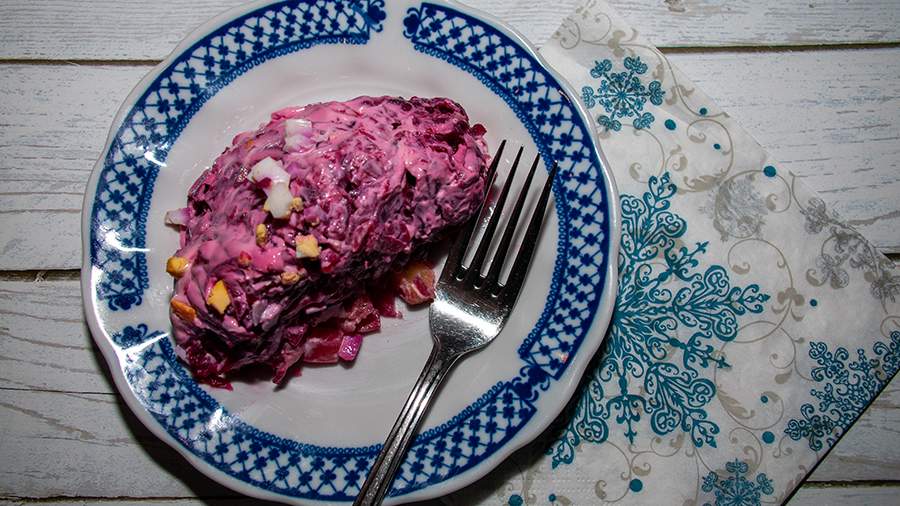The doctor told about the shelf life of New Year's salads

New Year's holidays are traditionally accompanied by an abundance of food, but their volume often exceeds the real needs, and the remaining dishes are sent to the refrigerator or balcony "until better times". Vera Bondarchuk, head of the microbiological research division of LabQuest, a doctor-bacteriologist, told Izvestia on December 30 about whether it is safe to finish salads after the holiday.
"Microorganisms that surround us everywhere continue to develop even in the refrigerator, especially in systems with No Frost technology, where regular defrosting is not required - this often leads to insufficient hygiene and bacterial multiplication," Bondarchuk explained.
According to her, in spoiled salads, the most common bacteria found in spoiled salads are listeria, E. coli, staphylococcus, salmonella and mold. These microorganisms can cause not only unpleasant symptoms such as vomiting and diarrhea, but also more serious problems. For example, some types of E. coli can lead to kidney failure, and listeria can cause listeriosis, which is especially dangerous for women in pregnant women and people with weakened immune systems.
In addition, for popular New Year's salads, such as olivier, herring under a fur coat, mimosa or salad with crab sticks, you should remember one important rule: they should be prepared on the day of the celebration and dressed immediately before serving. This will help ensure they are safe for consumption the next day, although the flavor can certainly change.
"Shelf life of ready-made dishes is regulated by sanitary norms and depends on the temperature. Thus, salads made of raw vegetables, eggs and canned food with sauces are considered the most perishable: they can be stored for no more than six hours. Other salads are allowed to store up to 12 hours, if they are dressed, and up to 36 hours - without dressing," - summarized Bondarchuk.
Earlier, on November 24, Natalia Kharchenko, candidate of medical sciences, gastroenterologist at the European Medical Center (EMC), told Izvestia about how to avoid harmful recipes and make New Year's dishes more useful. According to her, olivier, mimosa and herring under fur coat salads prepared according to the classic recipe contain too much fat and salt, while meat and cheese cuts are "rich" in preservatives, dyes and flavor enhancers.
Переведено сервисом «Яндекс Переводчик»

